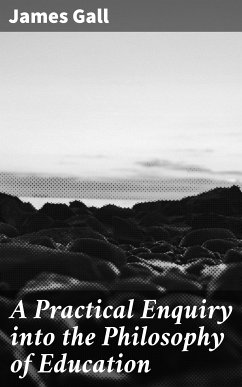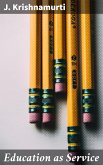In "A Practical Enquiry into the Philosophy of Education," James Gall presents a comprehensive examination of educational principles through a philosophical lens. Drawing upon the intellectual currents of his time, Gall employs a methodical and accessible literary style to interrogate fundamental questions about knowledge, pedagogy, and the responsibilities of educators. The text is simultaneously a critique of existing educational theories and a proposal for more pragmatic approaches, highlighting the intersections between theoretical philosophy and applied education in the 19th century. James Gall, a prominent figure in the educational reform movement, was profoundly influenced by the rapid social changes of his era. His background as a teacher and commitment to improving educational practices shaped his views on the necessity of aligning philosophy with practical teaching. Gall's experiences in various educational settings allowed him to recognize the disconnect between theory and practice, motivating him to address these issues earnestly through his work. Readers who seek a deeper understanding of the philosophical underpinnings of contemporary education will find Gall's work indispensable. His articulate arguments challenge conventional wisdom while providing valuable insights for educators, philosophers, and policymakers alike. Gall'Äôs inquiry not only enriches the discourse on education but also remains relevant as we grapple with modern educational challenges.
Dieser Download kann aus rechtlichen Gründen nur mit Rechnungsadresse in A, B, BG, CY, CZ, D, DK, EW, E, FIN, F, GR, H, IRL, I, LT, L, LR, M, NL, PL, P, R, S, SLO, SK ausgeliefert werden.









